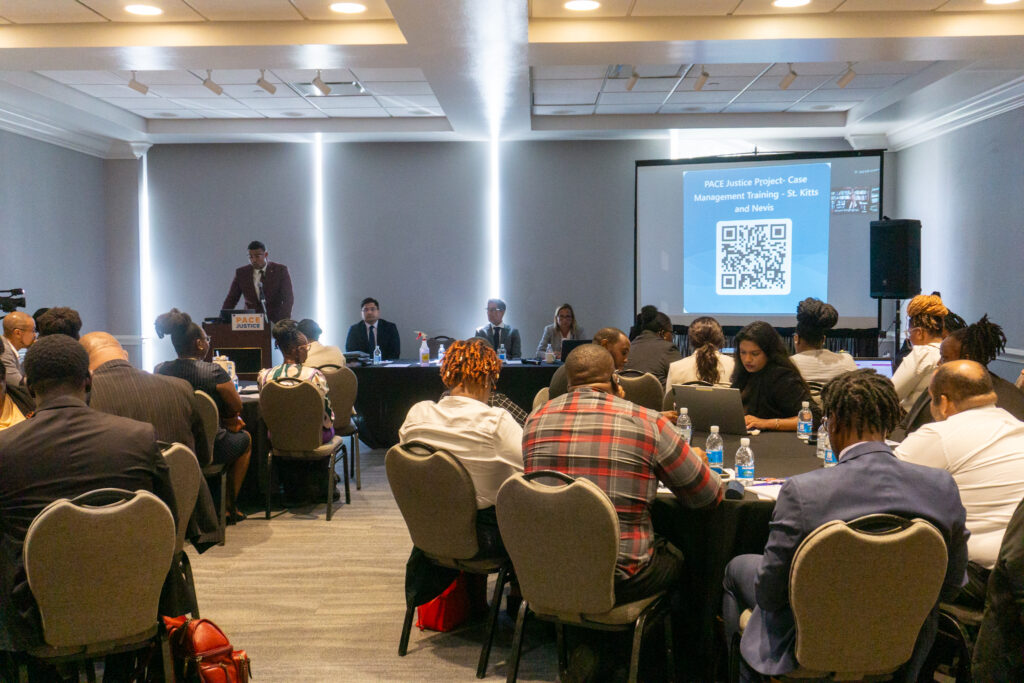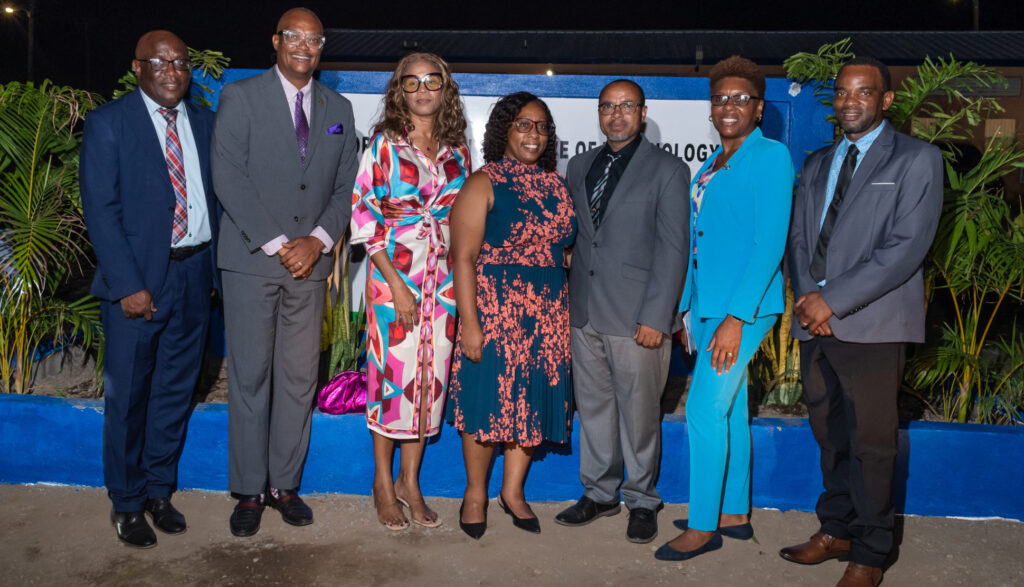Justice Ministry Case Management Training
This two-day Case Management Training, held from September 22nd to 23rd in Basseterre, signifies a crucial step towards strengthening the justice system in Saint Kitts and Nevis. Organized by the Attorney General’s Office and Ministry of Justice and Legal Affairs in collaboration with the UNDP PACE Justice Project, and funded by the European Union, the training focuses on equipping key legal professionals with enhanced case management skills. Participants include judges, magistrates, prosecutors, defence counsel, registrars, and clerks of court, all vital cogs in the machinery of justice delivery. The overarching aim is to tackle the pervasive issue of backlogs and delays that undermine the efficiency and erode public trust in the judicial process. By fostering a more proactive and efficient approach to case management, the training seeks to ensure timely justice for victims, witnesses, and defendants alike, thereby upholding the principles of fairness and effectiveness within the legal system.
Attorney General and Minister of Justice and Legal Affairs, the Hon. Garth Wilkin, underscored the significance of the training in his opening remarks. He emphasized the detrimental impact of backlogs and delays, highlighting how they not only impede the efficient administration of justice but also compromise public confidence in the system. Acknowledging the potential for prolonged trials and frequent adjournments to deny timely justice to all parties involved, the Attorney General stressed the importance of the training in equipping legal professionals with practical tools and strategies to mitigate these challenges. This proactive approach to case management aims to streamline judicial processes, reduce backlog, and ultimately reinforce the integrity and effectiveness of the justice system.
The comprehensive curriculum covers a wide range of crucial topics designed to enhance the efficiency and effectiveness of case management practices. Participants will delve into various case management techniques and explore how judicial controls can be employed to minimize delays. The training will also address the important role of judicial sanctions and accountability for counsel in fostering a culture of responsibility and efficiency within the courtroom. Practical, scenario-based exercises will provide participants with hands-on experience in narrowing issues, agreeing on facts, and enforcing preparation, essential skills for streamlining legal proceedings. Furthermore, the training emphasizes the importance of judicial leadership in transitioning from a reactive to a proactive approach to case flow management, fostering a more efficient and responsive judicial environment. Finally, recognizing the demanding nature of legal practice, the training also incorporates modules on time and stress management, equipping participants with valuable skills to enhance their professional well-being and overall effectiveness.
The training boasts a distinguished panel of facilitators, including Justice of Appeal Mr. Boodoosingh, Justice Morley, Justice Thompson, Dr. Affonso, and Mr. García Muñoz. These experts bring a wealth of global, regional, and practical experience to the program, enriching the learning experience for participants. Their diverse perspectives and expertise will provide valuable insights into best practices in case management, facilitating a robust exchange of knowledge and fostering a deeper understanding of the challenges and opportunities within the Caribbean legal landscape. This collective expertise will contribute significantly to the development of practical and effective case management strategies within Saint Kitts and Nevis.
The training aligns seamlessly with the commitments outlined in the Needham Point Declaration on Criminal Justice Reform, a regional initiative that emphasizes the pivotal role of case management and plea negotiations in modernizing criminal justice systems across the Caribbean. By adhering to the principles of this declaration, the training reinforces the commitment of Saint Kitts and Nevis to regional collaboration and the adoption of best practices in criminal justice reform. This reflects a broader regional effort to enhance the efficiency, fairness, and effectiveness of judicial processes across the Caribbean.
The Attorney General reiterated the government’s unwavering commitment to supporting these critical reforms, emphasizing the essential role of cooperation amongst all stakeholders in achieving effective case management. He stressed that strong collaboration between the judiciary, prosecution, defence, and court administration is paramount to the successful implementation of these reforms. This collaborative approach is crucial for fostering a shared understanding of challenges, developing effective solutions, and ensuring the seamless integration of new strategies into the existing judicial framework. This shared commitment to reform underscores the importance of professional responsibility in delivering timely, fair, and effective justice in Saint Kitts and Nevis.
This Case Management Training is an integral component of a broader justice reform agenda being implemented in the Federation with the support of the UNDP and the European Union. This comprehensive agenda encompasses various initiatives, including the digitization of court processes, a crucial step towards modernizing and streamlining judicial operations. Furthermore, the agenda prioritizes diversion and rehabilitation initiatives, recognizing the importance of alternative approaches to traditional punitive measures. It also includes broader institutional strengthening measures designed to enhance the overall capacity and effectiveness of the justice system. All these efforts converge on a central objective: reducing backlog and ensuring timely access to justice for all citizens, thereby upholding the fundamental principles of fairness and equity within the legal system.
Share this content:












Post Comment